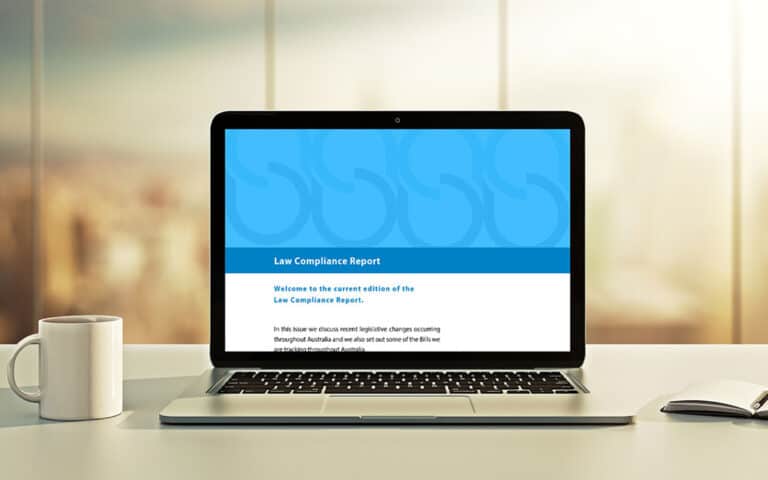This article applies to all organisations in NSW that provide services or interact with children.
Children’s Guardian Amendment Bill 2022 (NSW)
Background
Please be advised that the Children’s Guardian Amendment Bill 2022 (NSW) (the Bill) passed NSW parliament on 22 June 2022 and received Royal Assent on 1 July 2022. The Bill makes several changes to the Children’s Guardian Act 2019 (NSW) (the CG Act).
The primary objective of the Bill is to introduce codes of practice to ensure that Child Safe Standards are complied with, to remove the concepts of voluntary out-of-home care and registered agencies and replace the concept of voluntary out-of-home care with specialised substitute residential care and provide mechanisms for the accreditation of designated agencies and adoption service providers.
Finally, the Bill also provides for the nomination of a principal officer of certain child safe organisations.
The Bill will commence as follows:
- for updated provisions relating to registers to be kept by the Children’s Guardian on 18 July 2022,
- otherwise on 1 September 2022.
Codes of practice
The Bill inserts section 8DA into the CD Act which provides for regulations to prescribe codes of practice aimed at ensuring entities comply with Child Safe Standards. Under the new section a code of practice may only apply to the following entities:
- a designated agency;
- an adoption service provider;
- an entity providing specialised substitute residential care; or
- an entity prescribed by the regulations.
A code of practice under section 8DA may include the following:
- the steps that must be taken to implement the Child Safe Standards,
- the outcomes that will indicate compliance with the Child Safe Standards,
- other matters relevant to compliance with the Child Safe Standards,
- a code of practice that applies to a designated agency or an adoption service provider may also include steps that must be taken to obtain and maintain accreditation under the GC Act.
In accordance with the Bill, an entity providing specialised substitute residential care is required to submit a self-assessment of the entity’s compliance with the Child Safe Standards within the time specified in the code of practice. Failing to comply will be an offence and may result in a maximum penalty of 10 penalty units (currently $1,100).
All entities must comply with the code of practice that applies to that entity. Failing to comply may result in an investigation by the Children’s Guardian and the issuance of a compliance notice under Part 9A of the CG Act.
Designated agency means an agency accredited by the Children’s Guardian under Schedule 3A of the CG Act.
Specialised substitute residential care means substitute residential care for a child:
- funded by the National Disability Insurance Scheme under the National Disability Insurance Scheme Act 2013 (Cth), or
- provided for the purposes of respite services or behaviour support.
Children in specialised substitute residential care
Importantly, organisations that provide specialised substitute residential care in relation to children will be subject to Division 7 of Part 3A of the CG Act.
Specifically, under section 8ZA of the CG Act, a child must not remain in specialised substitute residential care for a time not exceeding 90 days in a 12-month period unless it is supervised by a designated agency.
If the child remains in specialised substitute residential care for more than a total of 180 days in a 12-month period, the designated agency or the Children’s Guardian must ensure that there is a plan to address the child’s need.
If a child dies while in specialised substitute residential care, the principal officer must immediately notify the parents of the child (if they can be located), the Children’s Guardian and the Coroner regarding the child’s death.
Principal officer of an entity providing specialised substitute residential care means the person who has the overall supervision of the entity’s arrangements for providing specialised substitute residential care.
Accreditation of designated agencies
The Bill inserts Schedule 3A into the CG Act being the accreditation of a designated agency outlining the accreditation criteria that must be met by an agency to be accredited. and the steps for the application for the grant of accreditation.
Where an application for accreditation is granted, the accreditation is valid for a maximum of 5 years if the applicant had previously held full accreditation, or otherwise 3 years. The designated agency must comply with the conditions prescribed by the CG Act, the regulations and any conditions imposed by the Children’s Guardian.
Agency means a government agency or part of a government agency or an organisation or part of an organisation.
Accreditation of adoption service providers
Similarly, to the above, the Bill inserts Schedule 3B of the CG Act regarding accreditation of adoption services and outlines the accreditation criteria that must be met by an organisation to be accredited.
Organisation means a charitable organisation within the meaning of the Adoption Act 2000 (NSW), or part of a charitable organisation.
We note that the introduction of accreditation under the Bill does not affect the existing accreditation under the CG Act and that the accreditation will continue to be in force in the same form and the same period.
Please click here to access the full Bill.




